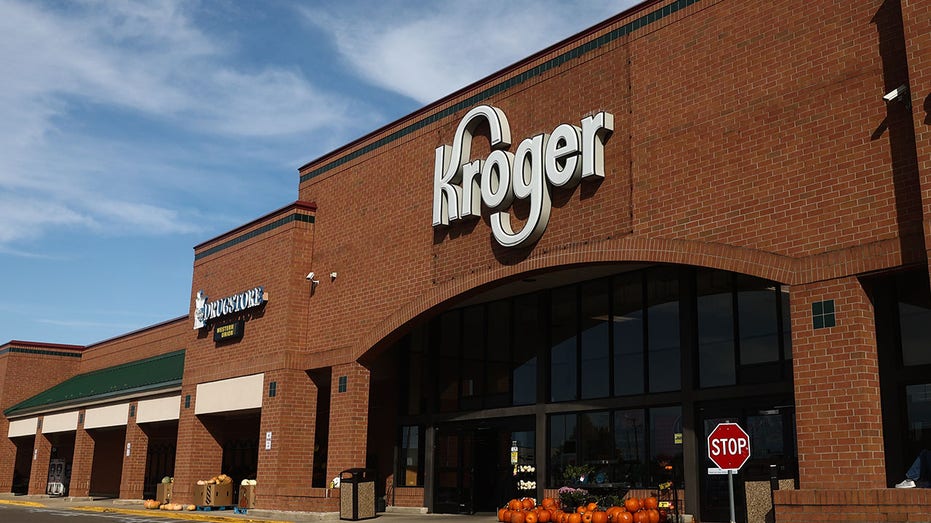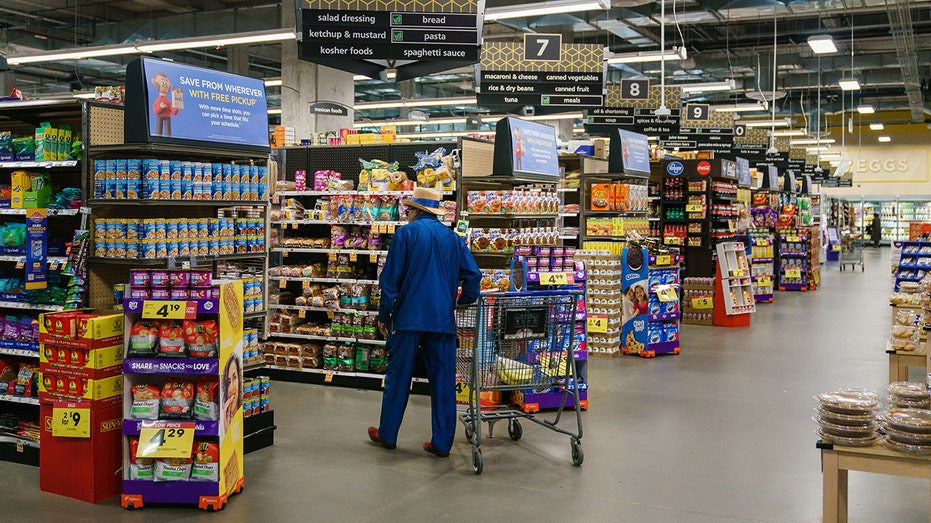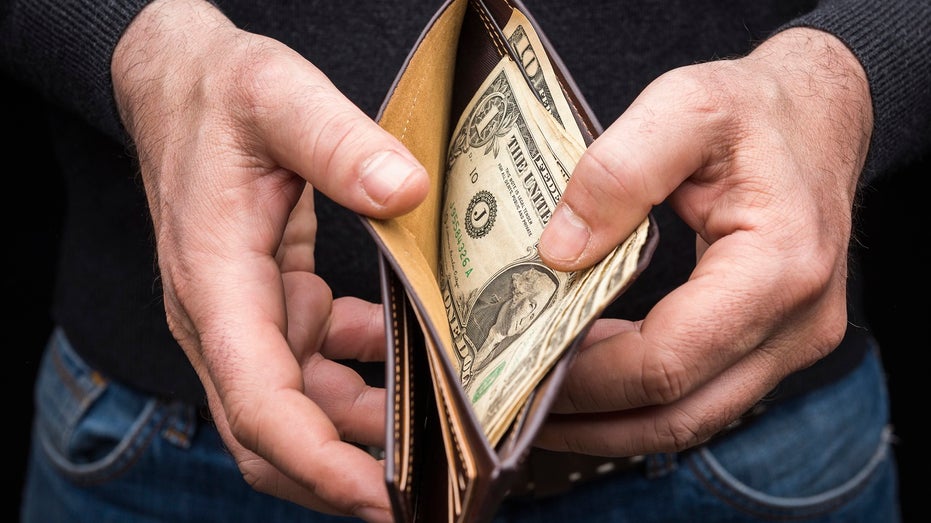Kroger warns of weaker sales, further stress for consumers
Grocery giant expects inflation will continue to take a toll through 2023
American consumers have lost in every way under Biden admin: John Catsimatidis
CEO of United Refining Company and Red Apple Group John Catsimatidis on the rise in oil prices and the 2024 Republican presidential candidates.
Grocery giant Kroger reported Friday that it expects sales to dip in the second half of 2023, predicting further pressure on consumers who are already being squeezed on multiple fronts due to high prices, debt and interest rates.
"We believe inflation will continue to decelerate and the environment will remain challenging for consumers," Kroger CFO Gary Millerchip said in a statement released with the company's second quarter results. Therefore, he said, the company is forecasting that sales will be "slightly negative in the second half of the year" than previous guidance suggested.

Kroger warned Friday it expects weakened sales in the second half of 2023. (Jakub Porzycki/NurPhoto via Getty Images / Getty Images)
| Ticker | Security | Last | Change | Change % |
|---|---|---|---|---|
| KR | THE KROGER CO. | 67.50 | +0.83 | +1.24% |
Kroger Co.
Kroger's total sales were $33.9 billion last quarter, down from $34.6 billion from a year ago, with the drop attributed in part to strained consumer spending due to still-high inflation. The company posted a $180 million loss for the quarter, but that was largely due to it taking a $1.4 billion charge related to a nationwide opioid settlement.
INFLATION FORCING AMERICANS TO SPEND $709 MORE PER MONTH THAN 2 YEARS AGO: ECONOMIST
Following a yearlong streak of steady declining prices, inflation ticked higher in July to 3.2% from the same time last year. Although the consumer price index is down sharply from its 9.1% peak, it remains well above the Federal Reserve's 2% target despite the central bank's aggressive interest-rate hike campaign aimed at reining in high prices.

Shoppers are seen in a Kroger supermarket on October 14, 2022, in Atlanta, Georgia. Consumers have started to pull back on retail spending in some categories, including grocery stores. ((Photo by Elijah Nouvelage / AFP) (Photo by ELIJAH NOUVELAGE/AFP via Getty Images) / Getty Images)
A strong job market and wage increases have helped to buoy consumer spending in recent months despite elevated inflation, but consumers have started to pull back on spending in areas like grocery stores, garden and home improvement outlets and other retail categories.
US RECESSION REMAINS ‘MORE LIKELY THAN NOT,’ DEUTSCHE BANK WARNS
The Fed has credited Americans' pandemic-era buildup of excess savings with keeping the economy rolling, but data indicates that households could deplete those cash reserves this quarter.

U.S. consumers are running out of cash reserves and increasingly relying on credit cards for everyday purchases. (iStock / iStock)
At the same time, consumers are increasingly turning to their credit cards to cover everyday expenses, with the New York Fed reporting last month that debt topped $1 trillion for the first time in June.
GET FOX BUSINESS ON THE GO BY CLICKING HERE
Beyond concerns that many consumers are in debt over their heads, interest payments on credit cards are piling up, following the Fed's approval of 11 rate hikes over the course of 16 months.
FOX Business' Megan Henney and Reuters contributed to this report.





















